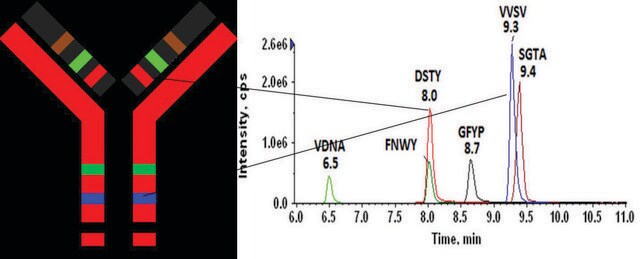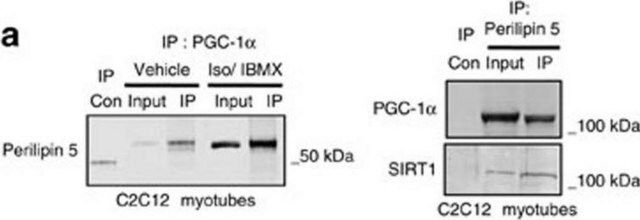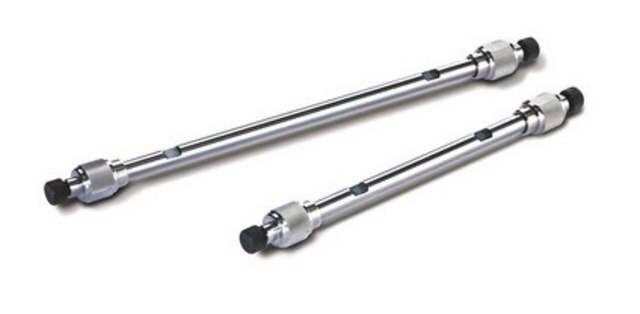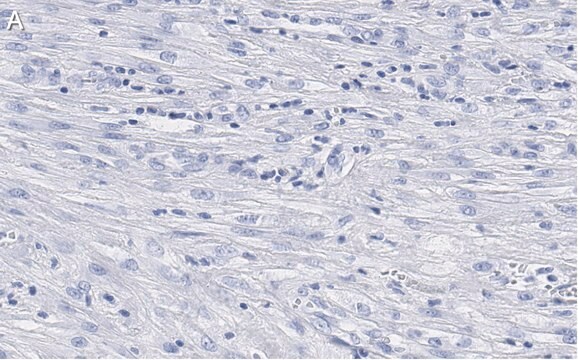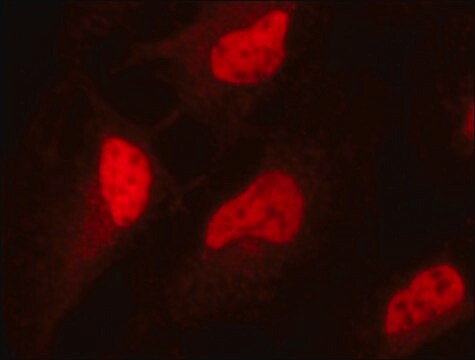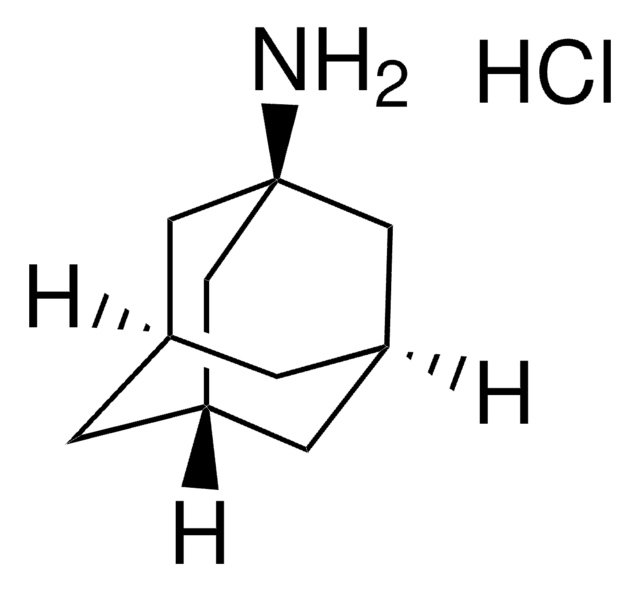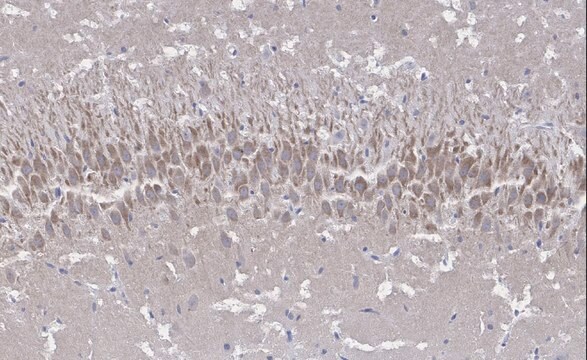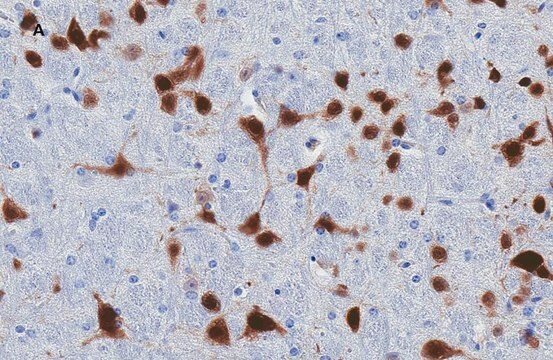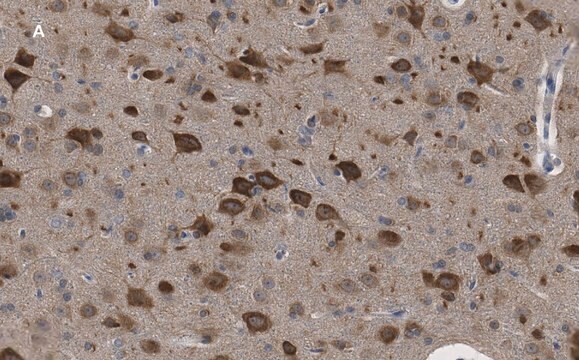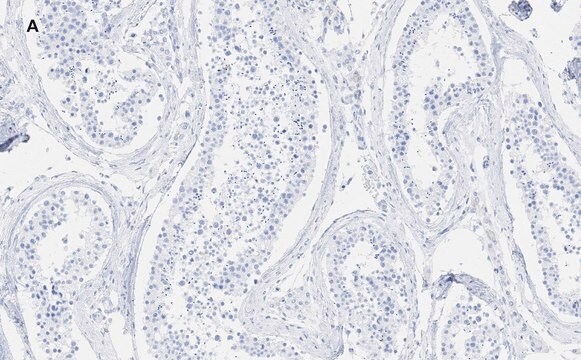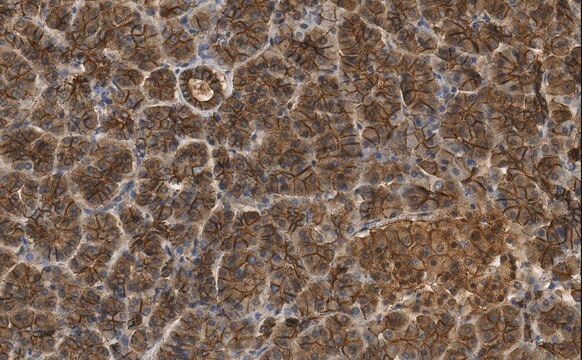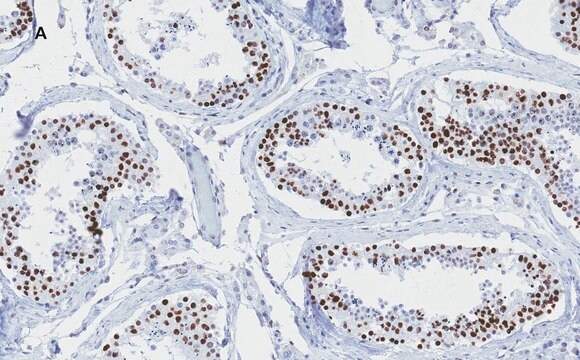ZRB07131
Anti-Sirt1 (Sir2) Antibody, clone 1G16, ZooMAb® Rabbit Monoclonal

recombinant, expressed in HEK 293 cells
Synonyme(s) :
NAD-dependent protein deacetylase sirtuin-1, Regulatory protein SIR2 homolog 1, SIR2-like protein 1, SIR2alpha, Sir2, mSIR2a
About This Item
Produits recommandés
Source biologique
rabbit (recombinant)
Niveau de qualité
Produit recombinant
expressed in HEK 293 cells
Conjugué
unconjugated
Forme d'anticorps
purified antibody
Type de produit anticorps
primary antibodies
Clone
1G16, recombinant monoclonal
monoclonal
Gamme de produits
ZooMAb® learn more
Forme
lyophilized
Poids mol.
calculated mol wt 80.32 kDa
observed mol wt ~110 kDa
Espèces réactives
mouse
Conditionnement
antibody small pack of 25 μL
Caractéristiques du produit alternatif plus écologique
Waste Prevention
Designing Safer Chemicals
Design for Energy Efficiency
Learn more about the Principles of Green Chemistry.
Validation améliorée
recombinant expression
Learn more about Antibody Enhanced Validation
sustainability
Greener Alternative Product
Technique(s)
immunocytochemistry: suitable using 1:100
immunohistochemistry: 1:100-1:200
western blot: suitable using 1:1,000
Isotype
IgG
Numéro d'accès UniProt
Autre catégorie plus écologique
Conditions d'expédition
ambient
Température de stockage
2-8°C
Modification post-traductionnelle de la cible
unmodified
Informations sur le gène
mouse ... Sirt1; Sir2l1(93759)
Description générale
Each ZooMAb antibody is manufactured using our proprietary recombinant expression system, purified to homogeneity, and precisely dispensed to produce robust and highly reproducible lot-to-lot consistency. Only top-performing clones are released for use by researchers. Each antibody is validated for high specificity and affinity across multiple applications, including its most commonly used application. ZooMAb antibodies are reliably available and ready to ship when you need them.
Learn more about ZooMAb here.
Spécificité
Immunogène
Application
Immunocytochemistry Analysis: A 1:100 dilution from a representative lot detected Sirt1 (Sir2) in NIH/3T3 cells.
Description de la cible
Forme physique
Stockage et stabilité
Informations légales
Clause de non-responsabilité
Vous ne trouvez pas le bon produit ?
Essayez notre Outil de sélection de produits.
Code de la classe de stockage
11 - Combustible Solids
Classe de danger pour l'eau (WGK)
WGK 2
Faites votre choix parmi les versions les plus récentes :
Certificats d'analyse (COA)
Vous ne trouvez pas la bonne version ?
Si vous avez besoin d'une version particulière, vous pouvez rechercher un certificat spécifique par le numéro de lot.
Déjà en possession de ce produit ?
Retrouvez la documentation relative aux produits que vous avez récemment achetés dans la Bibliothèque de documents.
Les clients ont également consulté
Notre équipe de scientifiques dispose d'une expérience dans tous les secteurs de la recherche, notamment en sciences de la vie, science des matériaux, synthèse chimique, chromatographie, analyse et dans de nombreux autres domaines..
Contacter notre Service technique
